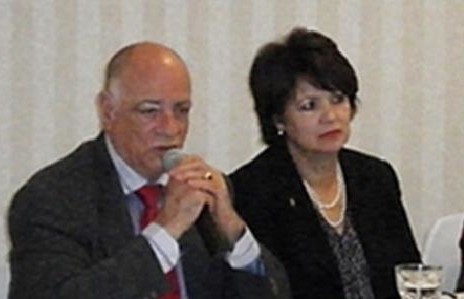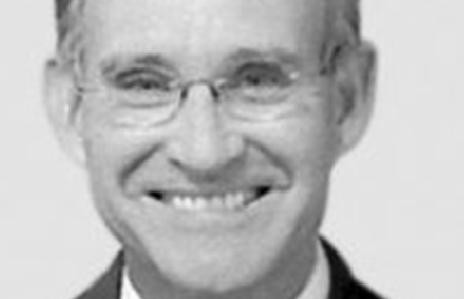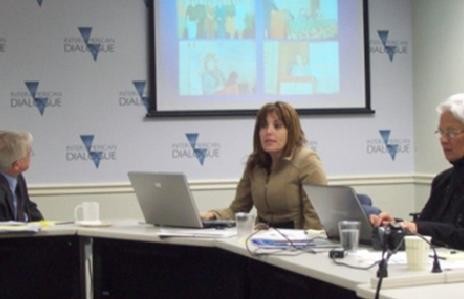
National Conference on Teacher Policy in Costa Rica
Workshop that seeks to promote debate on teacher policy and showcase innovative policies.
We tend to think that big challenges are caused by big issues and therefore they need to be tackled with big programs. However, the experience of the informal economy proves that assumption wrong. Possibly, changing mindsets by introducing small behavioral changes might yield a bigger impact.
In Nicaragua, the presence of an informal economy is a prevalent issue, and has been for decades.[1] And despite millions of dollars in technical assistance from the international community dedicated to eradicating or reducing it, the trend continues to be the same. What has gone so wrong? The majority of these efforts have been focused on addressing barriers to market entry, but these approaches have had little success.
It may be time to explore a different approach, one based on understanding individual behavior and decision-making of business owners as a means to modify this process and increase formalization. Specifically, principles of behavioral economics point to some missing parts of the puzzle such as mindset barriers, default behavior and feelings of anxiety.
The Problem
The 2015 National Survey of Nicaraguan Enterprises by the ILO and COSEP found that 60% of informal enterprises in Nicaragua maintain their marginal status through a conscious decision; they are aware of the choice of being informal.[2] They believe formality will only cause them trouble. Other variables involved in the decision to remain informal are the lack of willingness to grow and ignorance about the process. This position also seems to be stronger among less educated people and women overall.
What is behind the 60% of businesses deciding not to formalize? Analyzing the psychology behind these decisions and creating recommendations that increase formalization can result in optimizing gains.
One of the essential steps is to understand that their decision is informed by risk aversion or by anxiety-driven, short-term gains. Experts have found that people living in poverty are more risk averse and more likely to decide on present gains rather than greater but future gains.[3] Moreover, living in scarcity makes you anxious and this feeling translates into a constant present-bias that is applied in economic choices.
Also, because people are typically loss-averse, they tend to value what they own over what they can acquire from others. This principle is key to understanding why businesses may be hesitant to change their “already functioning” informal business into a formal one. “What we already have is valuable and what we will acquire is unknown and probably negative,” the thinking goes.
While this mindset is a strong barrier, social psychology in the science of decision-making can provide some insights and recommendations.
Outside of the Box Approaches: Guidance, Proximity, and Ease of Entry
Institutions can help modify decision-making among informal entrepreneurs by introducing small changes that offer large returns. Guidance, proximity, ease of entry and trust-building can have an increase in the rate of formalization.
Although it is assumed that persuasive messages change people’s beliefs, what really changes behavior is a step-by-step guide that makes it easier for people to comply. For example, in a voting campaign people tend to vote more when they have been given information about how to get to their polling place.
Giving precise, step-by-step instructions increases the probability of following a formalization process. Governments and municipalities should create descriptive materials that include step-by-step indications of how to get to the office, when is the best time to go, what to expect, the needed requirements, and the exact cost of the paperwork. These instructions must be visually easy to understand, simple and short but also complete. For example, a common mistake consists of going to the VUI (Ventanilla Unica de Trámites) in Managua, with all documentation but lacking of the notarization. The instructions must include the step of looking for a lawyer, include a list of possible lawyers and their locations, include the timeframe and fees, and so on. It’s recommended to provide this material to the businesses in a printed and friendly format.
Another factor that must be considered in the process of formalizing is that the geographic proximity of services offered is a good predictor of usage. The absence of ‘agencies for formalization’ in a country where three quarters of businesses are informal may also explain the high rate. Even though it may seem obvious, it is a good argument for offering services that go to informal businesses instead of waiting for them to come to the government. For example, outreach conducted using mobile offices in markets, central bus stations and other places of high concentration and traffic of informal entrepreneurs can make a key impact in reducing informality rates.
Although access to banks is not common among informal businesses, having savings in a financial institution increases the probability that the owner will be able to receive credit.
Evidence has shown us the principle of “a foot in the door,”[4] which means that a “first step” or a small request increases the probability of a follow-up behavior or of complying with a second, larger request. For example, if we can make an informal business owner open a savings account, the probability that he or she will acquire other services is higher than that of people who do not commit to a bank account. Opening a bank account is the foot in the door to other financial services, including credits. These are investments that will likely help the business grow.
One important thing to keep in mind is that this first step can also work against the behavior we want. For example, when a customer approaches a financial or government organization and is treated disrespectfully or with distrust, they might not come again and they might feel even more strongly against formalization. On the other hand, evidence has shown us that feeling trusted empowers and encourages people to reciprocate by making them feel worthy of change.
The rational decision for a business is to become formalized. However, the benefits of formalization are not visible or accounted for at the time when the decision is made. Formalization will increase financial opportunities, open more markets and the public support will increase, resulting in greater growth opportunities and better protections. The key issue is to help businesses make the decision to optimize their gains in the long term.
Beatriz Slooten is a Senior Researcher from Centro Latinoamericano de Competitividad y Desarrollo Sostenible (CLACDS) at INCAE Business School. She recently produced a report titled “Recomendación para el Entorno Empresarial en Nicaragua” which introduces recommendations to address supply chains, innovation, informality and human capital.
—————————————————————————————————————————————————————————————————————–
[1] See CEPALSTAT: https://interwp.cepal.org/sisgen/ConsultaIntegrada.asp?IdAplicacion=1&idTema=633&idIndicador=252&idioma=e (visited on June 6th, 2016)
[2] The other 40% of businesses are not formalized because of the political and financial context. The lack of access to appropriate financial opportunities, the prevalence of markets that are disconnected from value chains, the bureaucratic red tape as well as cost barriers are quite challenging when trying to formalize a business.
[3] See Hauschofer and Fehr, On the Psychology of Poverty: The Science of Inequality, 2014.
[4] See Freedman and Fraser, 1966.
Workshop that seeks to promote debate on teacher policy and showcase innovative policies.
Former Nicaraguan Minister of Education Humberto Belli recently shared with us his article published in La Prensa on the subject of teacher pay. Belli co-chaired the Task Force on Education in Central America that produced PREAL’s Central American Regional Report Card in 2007 and was a member of the advisory committee for the Nicaragua national…
PREAL reviews broad spectrum of its activities and discusses priorities for improving education policy in the coming year.

